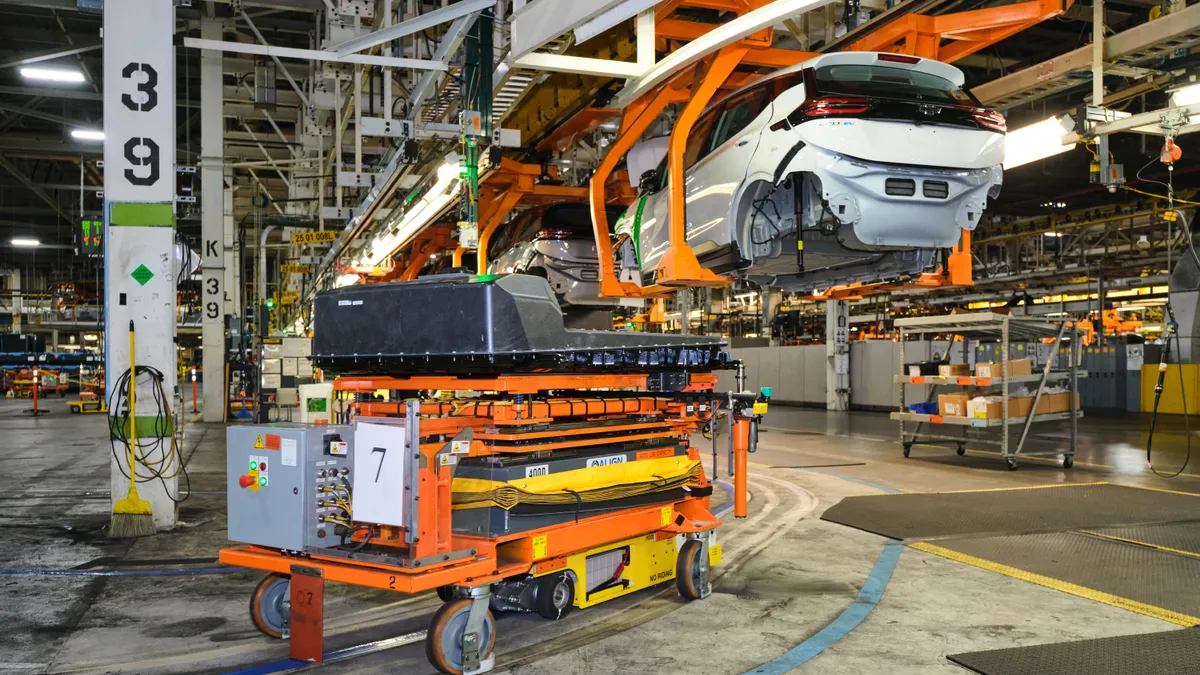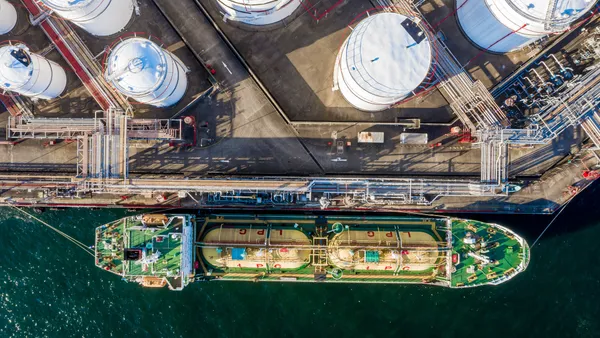Dive Brief:
- GM and LG Chem have reached a long-term supply agreement that will provide the automaker with over 500,000 tons of cathode material for electric vehicle production between 2026 and 2035, according to a Wednesday release from LG Chem.
- The approximately $18.8 billion deal (25 trillion South Korean won) provides enough material to supply five million high-performance EVs, LG Chem said.
- The deal “strengthens the North American supply chain at a critical time for the industry,” Jeff Morrison, GM VP of global purchasing and supply chain, said in the release.
Dive Insight:
The deal announced Wednesday builds on and adds new details to an agreement GM and LG chem forged in 2022 as the automaker worked to secure the supply of critical materials for EV production.
The companies highlighted the deal’s impact on the domestic EV and battery supply chain as the auto industry works to comply with domestic EV material supply requirements for subsidies under the Inflation Reduction Act.
LG Chem said in the release it “aims to bolster cooperation with GM in the North American market” by using the South Korea-based chemical supplier’s upcoming cathode plant in Tennessee as a “production hub for the global battery material market.” The company plans to begin supplying GM with cathode materials — which include nickel, cobalt, manganese and aluminum — once the plant goes into production in 2026.
Construction on the plant began in December. LG Chem calls it the largest in the country, with a planned annual production capacity of 60,000 tons. The materials made there will be used primarily by Ultium Cells, a joint venture between GM and LG Chem spinoff LG Energy Solution.
The chemical company plans to use the Tennessee facility as “a base for communication with customers, producing customized cathode materials optimized for North American EVs from the development stage.” The company noted that materials produced at the U.S.-based plant would help automakers’ EVs qualify for subsidies under the IRA, which pushes automakers to domestically source materials used to manufacture vehicles.
The deal is one of several between automakers and material suppliers as the industry scrambles to build out a domestic supply chain compliant with the IRA for consumer EV subsidies. Automakers are also working to secure critical minerals as global supply of the materials come under strain.
Among other moves, Ford has signed multiple long-term lithium contracts, GM has invested in a lithium producer and plans to invest another $650 million with Canada-based mining specialist Lithium Americas to develop a mine, and Toyota has teamed up with Redwood Materials to source recycled battery materials.














